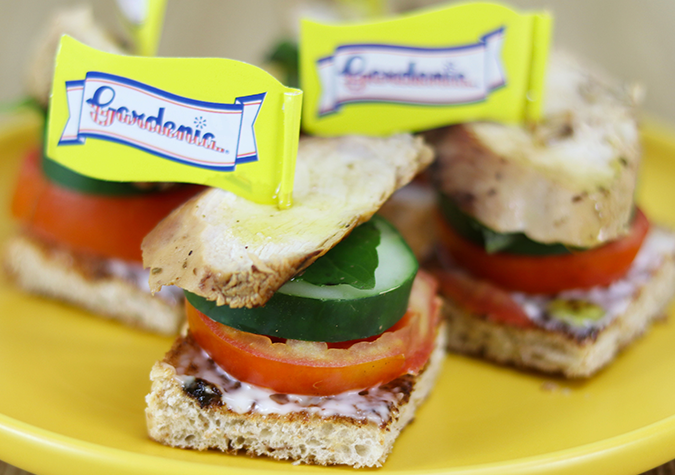#BREAKTHEMYTHS: Facts about Women’s Health
As we celebrate the International Women’s day on March 8, a global day celebrating socio-economic, cultural and political achievements of women from all over the world, this year’s theme is #BreaktheBias which raises awareness of gender equality. One of its mission is to assist women to be in a position of power to make informed decisions about their health.
Given that there are several myths about women’s health that were passed through generations, it is important that women are also informed about the facts they need to know most especially concerning health. Nowadays, you can find a lot of women’s health and wellness advice over the internet but take only advices from an expert or credible sources. Debunking the myths when it comes to women’s health is critical in the prevention and treating different medical conditions.
Here are some of the common myths along with the truth to make sure you have the right information:
Myth #1: Bras cause breast cancer
Have you been told not to wear bra because it may cause cancer? Good news! There’s no scientific evidence to support this claim.
TRUTH: There is no scientific or clinical basis for this claim, and a 2014 study of more than 1,500 women found no association between wearing a bra and breast cancer risk (American Cancer Society). What can you do to lower your chances of getting breast cancer? Maintain a healthy weight and avoid alcohol. Women who are obese or drink a lot of alcohol have a higher chance of developing breast cancer. Moreover, getting mammograms every year after you turn 45 is a proven way to detect breast cancer early and stop it from spreading.
Myth #2: The earlier you get your period, the earlier you will go through menopause.
TRUTH: The average age a woman goes through menopause is 51.7 years. This is not affected by the age a woman goes through puberty, the number of children she has, family history or birth control use. Your mother’s age at menopause is a key factor since menopause is strongly genetically linked. Some factors also include smoking, chemotherapy and ovarian surgery (Shaw, 2020).
Myth 3: Losing weight fast is best.
TRUTH: Quick-fix diets or fad diets may help you lose weight temporarily, but that’s because you’re restricting your food intake too much. However, these diets are usually low in nutrients and are unhealthy in the long run thus, may lead to poor diet adherence. It is still recommended to consult a nutritionist since our diet is highly individualized. Lose weight gradually and steadily for about 1 to 2 lbs or 1 kg per week. Healthy weight loss isn’t just about the “diet” but the lifestyle in general which includes the eating patterns and regular physical activity (CDC, 2020).
Myth #4: Carbohydrates makes you FAT
TRUTH: It’s the excess calories you eat that can make you fat, whether it comes from the carbohydrates, protein or fat. One type of food will not make you gain weight unless you are eating too much of it. Some carbs can actually help in losing weight but choose the right type of carbs. Choose complex carbs like starches and fiber (over simple carbs) which can help you feel full longer.
Good thing Gardenia offers healthier bread options like Gardenia Wheat Cranberry Loaf with combined benefits of whole wheat as a good source of fiber and cranberries that has antioxidant property. Check out this recipe to enjoy this bread even more:
Gardenia Cranberry Chicken Toast

INGREDIENTS:
2 slices of Gardenia Wheat Cranberry Loaf
1 pc Chicken Breast Fillet
1 tbsp Pesto Sauce
5 leaves Basil
4 slices Tomato
4 slices Cucumber
1 tbsp lite mayonnaise
PROCEDURE
1.) Toast Gardenia wheat cranberry loaf until golden brown. Set Aside.
2.) Marinate chicken in pesto sauce and grill until well done
To assemble:
1.) Spread lite mayonnaise onto the bread.
2.) Place basil leaves, sliced tomatoes, and sliced cucumber then add the grilled chicken pesto.
- Insert a toothpick in the middle to secure the chicken and slice into 4.
- Serve and enjoy!
Women who are stronger, healthier, and well-informed about nutrition can make better choices that can benefit their own needs and most especially the needs of their families. Better nutrition can unlock and maximize women’s potential by improving their overall health and well-being.
REFERENCES:
https://www.cancer.org/cancer/breast-cancer/risk-and-prevention/disproven-or-controversial-breast-cancer-risk-factors.
https://scopeblog.stanford.edu/2020/05/28/busting-myths-about-urinary-tract-infections-understanding-utis-part-3/
https://healthcare.utah.edu/womenshealth/patient-education/
https://www.healthline.com/nutrition/cranberry-juice-uti
https://www.webmd.com/menopause/features/menopause-age-prediction
https://www.cdc.gov/healthyweight/losing_weight/index.html